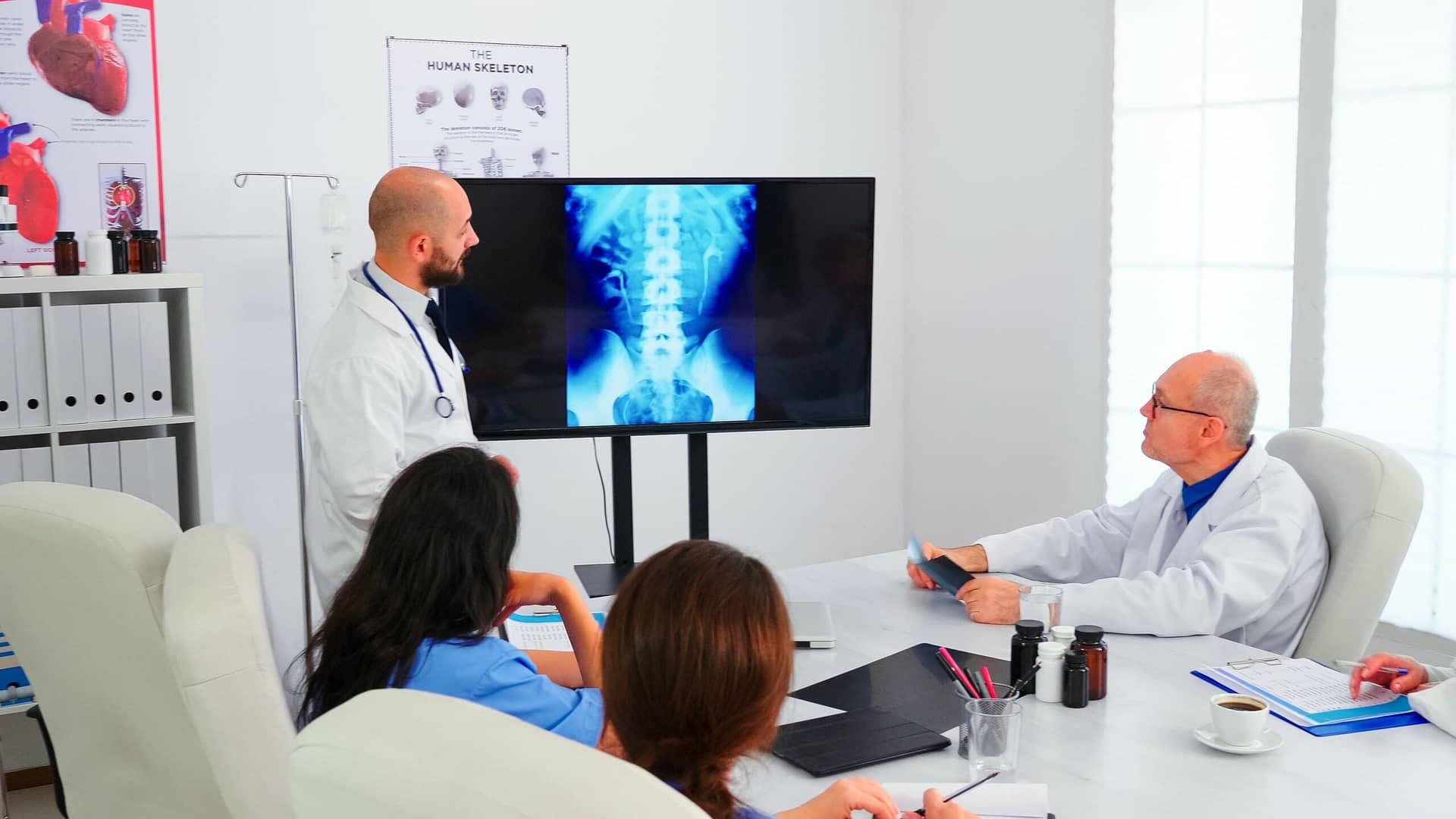For general health, maintaining bone health is essential, and DEXA scans are essential for determining bone density. This information is designed to assist you in understanding the procedure, getting ready for the test, and interpreting the findings if you find yourself in Dammam in need of a DEXA scan.
- What is a DEXA Scan?
- Finding a DEXA Scan Facility in Dammam
- Preparing for the DEXA Scan
- During the DEXA Scan
- Interpreting DEXA Scan Results
- Why Choose Healthcare Polyclinic
- FAQs
What is a DEXA Scan?
Dual-energy X-ray The non-invasive, painless imaging method called absorptiometry, or DEXA, is used to determine bone mineral density (BMD). It is frequently used to determine the risk of fractures and detect diseases like osteoporosis.
Finding a DEXA Scan Facility in Dammam
- Research and Recommendations: Start by looking at respectable Dammam hospitals that provide DEXA scans. Ask friends who have had comparable testing or your healthcare physician for advice.
- Check Accreditation: Make that the facility has accreditation and that the DEXA scan is performed by qualified personnel.
Preparing for the DEXA Scan
- Wear Appropriate Clothing: Choose loose-fitting, comfy apparel and avoid wearing any metal jewellery as this might obstruct the scan.
- Inform the Technologist: Tell the technician if you are expecting or if you have just undergone barium contrast material-filled X-ray tests.
- Dietary Considerations: A DEXA scan often does not require any special dietary preparation. But let the tech know about any vitamins or prescription drugs you use.
During the DEXA Scan
- Procedure Overview: A DEXA scan usually takes ten to thirty minutes, and it is a rapid and painless procedure. On a cushioned surface, you will lie as the scanner arm moves around your body.
- Patient Comfort: You will not experience any pain throughout the non-invasive process of the scan.
- Radiation Exposure: DEXA scans are safe to use on a daily basis since they expose users to very little radiation.
Interpreting DEXA Scan Results:
- Understanding T-Scores: T-scores contrast your BMD with that of a young adult in good health. Osteopenia, or poor bone density, is indicated by a score of -1 to -2.5, whereas osteoporosis is indicated by a score of -2.5 or below. A score above -1 is deemed normal.
- Z-Scores for Younger Individuals: Z-scores evaluate your BMD against others of similar size, age, and sex. Lower-than-average bone density for your age group may be indicated by negative scores.
- Consulting with Healthcare Providers: Talk about the findings with your physician to find out how they will affect the health of your bones.
Making bone health a priority is crucial, and DEXA scans provide insightful information about your bone density. You may take proactive measures to preserve strong and healthy bones by using this guide to help you manage the process of getting a DEXA scan in Dammam. For individualised counsel tailored to your particular circumstances, always seek the advice of your healthcare professional.
Why Choose Healthcare Polyclinic
Choosing a healthcare polyclinic in Dammam for your DEXA scan requirements guarantees a seamless and all-inclusive medical experience. Polyclinics put efficiency and convenience first, offering a variety of medical services under one roof, cutting-edge facilities, and skilled specialists.
The patient-centric approach guarantees tailored guidance based on the results of your DEXA scan, while the coordinated care strategy allows for smooth transitions to any necessary follow-up procedures. For people looking for precise and effective bone density examinations, a healthcare polyclinic becomes an appealing option with the added advantages of convenient appointment scheduling and a well-established reputation for high-quality care.
FAQs
A: Bone mineral density (BMD) is measured using a Dual-Energy X-ray Absorptiometry, or DEXA, scan. It is essential for determining the risk of fractures and detecting diseases like osteoporosis.
A: Look at respectable hospitals and ask friends or your healthcare provider for suggestions. Make sure the facility of choice has certifications for its technicians and is accredited.
A: Put on loose-fitting, comfy clothes and avoid wearing any metal items to guarantee accurate results free from outside interference.
A: There is often no special food preparation. But let the tech know about any vitamins or prescription drugs you use.
A: The technique is swift and effective, usually taking between ten and thirty minutes.
A: No, the DEXA scan is a painless, non-invasive process. On a cushioned surface, you will lie as the scanner arm moves around your body.
A: Yes, having a DEXA scan exposes you to very little radiation. Since the quantity is much less than with conventional X-rays, it is a safe diagnostic method.
A: Z-scores compare your BMD to someone in your age group, whereas T-scores compare it to a healthy young adult. A negative score might mean that your bone density is below average.
A: Your unique health and risk variables determine how frequently you should get DEXA scans. Find out from your healthcare practitioner when follow-up scans should be scheduled.
A: See your healthcare practitioner for specific recommendations. For the purpose of enhancing and maintaining bone health, they could suggest medication, lifestyle modifications, or other treatments.

